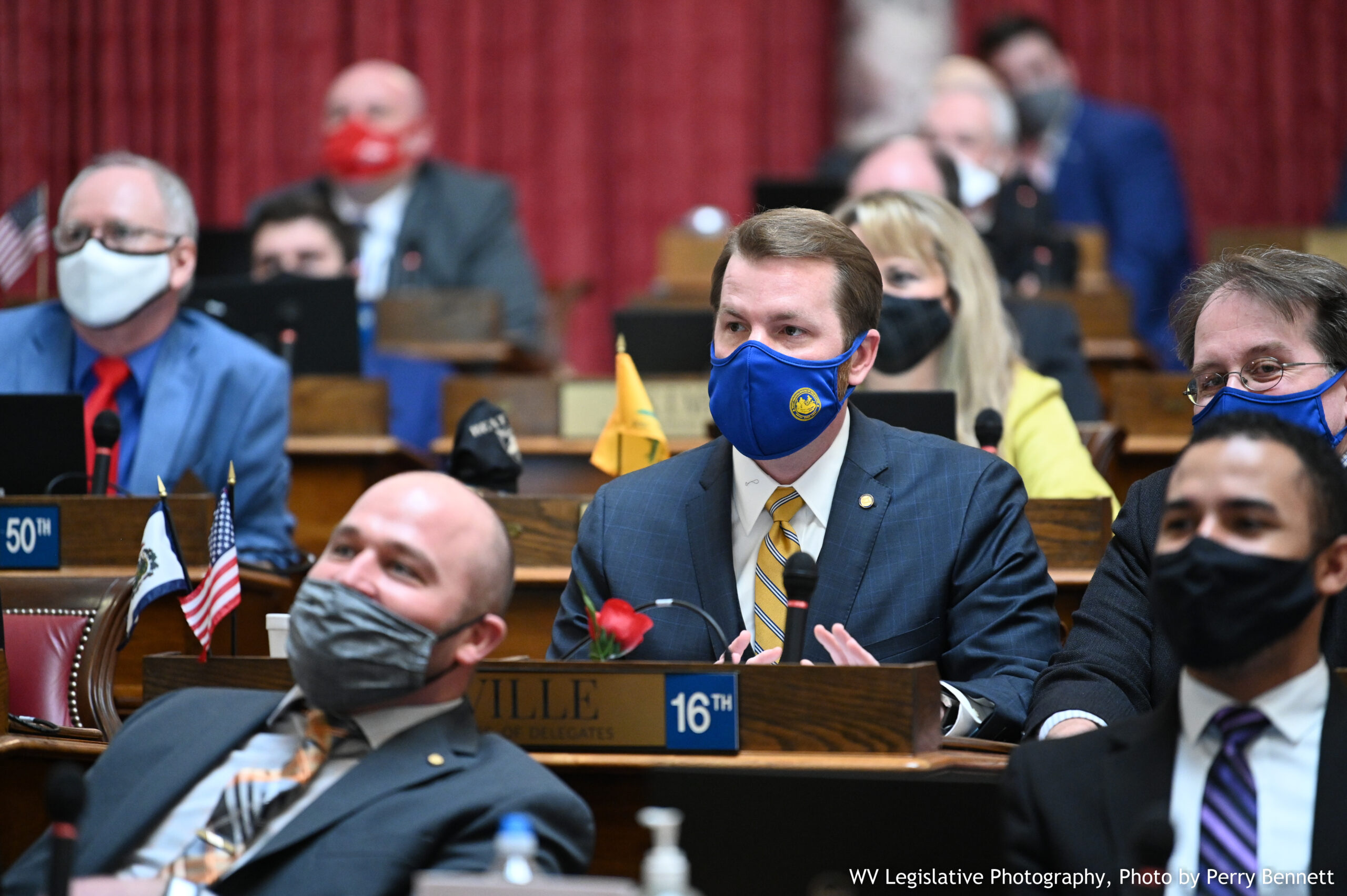MORGANTOWN – The House of Delegates opened Wednesday’s floor session with a somewhat contentious debate on a failure to debate. After that, things settled down, the the House sent the charter schools bill to the governor and almost unanimously passed a broadband bill.
The Senate passed a bill to extend the pilot program for drug-screening welfare applicants. Opponents contended the program is a failure and the vote fell along party lines.
Delegate Evan Hansen, D-Monongalia, kicked off the debate on debate. The Government Organization Committee on Tuesday had approved HCR 9, urging Congress to call a constitutional convention for a term limits amendment.
Hansen said Wednesday that debate was cut off before it began, and he had wanted to put into the record of letter of testimony from a Georgetown University Constitutional expert. So Hansen led a minority party report asking that the resolution be referred back to committee to allow debate.
Committee chair Brandon Steele, R-Raleigh, said they’d already spent more than an hour discussing the bill and hearing testimony on both sides. The motion to call the question and prevent debate was legitimate, he said. “The motion to call the question typically comes up when people are clearly stagnating the process for their own personal design.”
Delegate Larry Rowe, D-Kanawha, sided with Hansen. “There was no debate allowed in committee on an important bill. … What we’re about is debate.”
But Delegate Danny Hamrick, R-Harrsion, said while he voted against stopping debate in committee, the correct procedure was followed.
Hansen’s motion failed 22-77. Steele pledged to hold a public hearing on the resolution before it comes to a vote.
The charter schools bill is HB 2012. The House voted to concur with the amended Senate version and voted 68-31 to pass it and send it to the governor.
Broadband bill
HB 2002 runs more than 40 pages. It recognizes the Office of Broadband, expands its duties and requires the office to coordinate tasks with the Broadband Council.
It expedites the process for laying fiber in trenches when the Division of Highways is doing digs of 1,000 feet or more. It allows counties and cities to provide service, and partner with other providers and broadband co-ops to provide service.
Delegate Brent Boggs, D-Braxton, expressed the longstanding frustration of many regarding the years of failure to get broadband statewide.
“We’ve been talking about this for so long and we’ve seen so little progress,” he said. “If we don’t stop talking about this and if we don’t start producing some results, shame on all of us.”
Technology and Infrastructure chair and bill lead sponsor Daniel Linville, R-Cabell, said the major providers have consistently failed in their jobs. ““This empowers us to do it ourselves.”
The vote was 98-1, with Delegate Patrick McGeehan, R-Hancock, offering the sole vote against. It now goes to the Senate.
Drug testing bill
SB 387 proposes to extend the pilot program to drug test applicants for the Temporary Assistance for Needy Families program.
The three year pilot began in 2017; the bill would extend it through Dec. 31, 2022. Department of Health and Human Resources Deputy Secretary Jeremiah Samples previously told the Health Committee that various unforeseen circumstances, including the pandemic, led them to decide to request the extension so they can better assess if it’s working.
As the program is supposed to work, applicants who fail the drug test are to be referred to treatment and job training. If an adult fails, measures are in place to ensure any children in the adult’s care still receive benefits.
Samples told the Health Committee that there are 1,523 adults on TANF now and 4,530 kids. Since the pilot began, 11,000 people have passed through, 1,068 were drug screened, 131 tested positive (61 for marijuana) and just one went into a recovery program. The total spent on testing since 2107 is $33,000.
DHHR has had trouble, Samples said, getting people to respond back for referral to treatment after the positive test.
Sen Stephen Baldwin, D-Greenbrier, said while the program has safeguards to preserve the benefits for the kids, they’re suffering nonetheless. “These are kids who need all the help they can get just to survive.”
He’s in favor of drug screenings, he said, but this program targets just the poor. “Addiction doesn’t discriminate. … The program hasn’t worked.”
Sen. Robert Karnes, R-Randolph, defended the program, saying adults on TANF are receiving taxpayer money. Drugs are a cash commodity. If the adults fail the drug test, there’s every reason to believe they’re using taxpayer money to buy them. Working people have to take drug tests, people on public assistance should too.
Karnes’ statement irked Sen. Richard Lindsay, D-Kanawha, who asked Karnes where he got the data that TANF recipients are using public money for drugs. Karnes said it just follows logically. And Lindsay responded they’re supposed to vote based on facts, not opinion.
Health chair Mike Maroney, R-Marshall, said the intent of the bill is not to take food away from kids. And he noted that while only one person has completed treatment and job training, 95 others who were screened have sought Medicaid coverage in order to get treatment.
SB 387 passed 24-9 with two Democrats joining the majority. It now goes to the House.
Tweet David Beard@dbeardtdp Email dbeard@dominionpost.com




